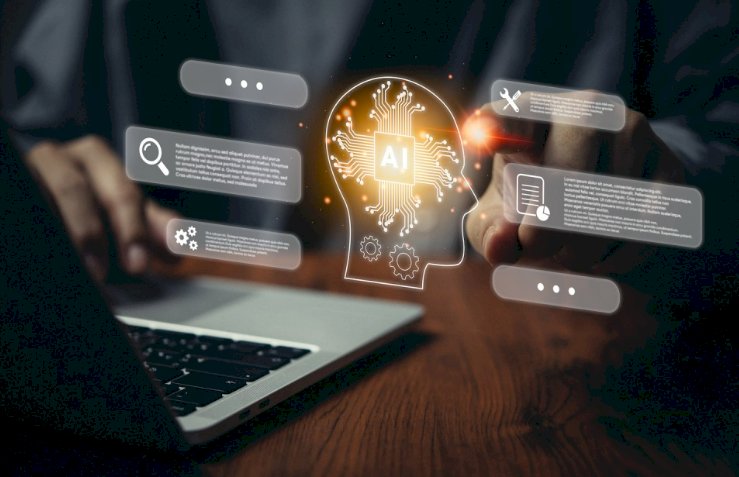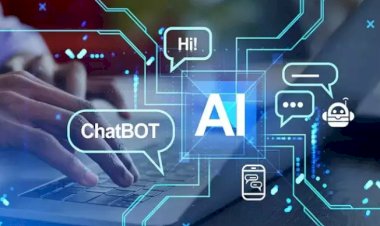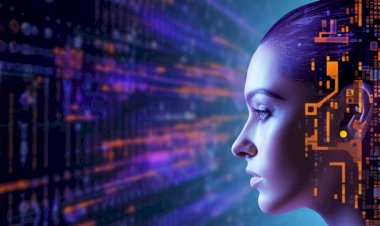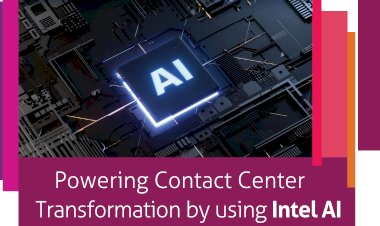Leveraging AI Tools for B2B Lead Generation: Revolutionizing the Way Businesses Connect

In today’s digital landscape, business-to-business (B2B) companies face immense pressure to generate high-quality leads consistently. As competition intensifies and buyer behaviors evolve, traditional lead generation methods are becoming less effective. Enter Artificial Intelligence (AI)—a game-changer that is transforming B2B lead generation. By harnessing the power of AI tools, businesses can streamline their lead generation processes, gain valuable insights, and improve conversion rates. Here’s how AI is revolutionizing B2B lead generation and the top tools driving this transformation.
1. The Importance of Lead Generation in B2B
Lead generation is the lifeblood of any B2B company. It involves identifying potential customers (leads) and nurturing them through the sales funnel until they convert into clients. Unlike B2C, where sales cycles are often shorter and transactions simpler, B2B lead generation is a more complex process. It requires building relationships, educating prospects, and addressing their specific needs. Effective lead generation strategies can significantly impact a company’s growth, revenue, and long-term success.
2. How AI is Transforming B2B Lead Generation
AI is bringing a new level of efficiency and precision to B2B lead generation. Here are some key ways AI is reshaping the landscape:
- Data-Driven Insights: AI tools can analyze vast amounts of data to identify patterns and trends that may not be immediately apparent. By examining customer behavior, preferences, and interactions, AI can provide valuable insights that help businesses understand their target audience better.
- Predictive Analytics: AI-driven predictive analytics can forecast which leads are most likely to convert. By analyzing historical data and identifying key indicators of successful conversions, AI can prioritize leads, allowing sales teams to focus their efforts on prospects with the highest potential.
- Personalization: Personalization is crucial for effective lead generation. AI can analyze a prospect’s behavior, interests, and previous interactions to deliver personalized content and messaging. This tailored approach increases engagement and improves the chances of converting leads into customers.
- Automation: AI-powered tools can automate repetitive tasks such as lead scoring, segmentation, and email marketing campaigns. This automation frees up time for sales and marketing teams to focus on more strategic activities and ensures that leads are nurtured effectively throughout their journey.
- Chatbots and Conversational AI: AI-powered chatbots can engage with website visitors in real time, answering questions, providing information, and capturing lead information. These chatbots can operate 24/7, ensuring that no potential lead is missed and providing immediate responses to inquiries.
3. Top AI Tools for B2B Lead Generation
Several AI tools are making waves in the B2B lead generation space. Here are some of the top tools that businesses can leverage to enhance their lead generation efforts:
- HubSpot: HubSpot offers AI-powered features that help businesses optimize their lead generation processes. The platform uses AI to analyze data and provide insights into lead behavior, allowing for more targeted marketing campaigns. HubSpot's predictive lead scoring feature helps prioritize leads based on their likelihood to convert.
- Drift: Drift is a conversational marketing platform that uses AI-powered chatbots to engage website visitors in real time. These chatbots can qualify leads, answer questions, and even schedule meetings with sales representatives. Drift’s AI capabilities allow for personalized interactions that improve lead conversion rates.
- Marketo Engage: Marketo Engage is an AI-driven marketing automation platform that offers advanced lead scoring and predictive analytics features. By analyzing lead behavior and engagement, Marketo can identify the most promising leads and automate personalized marketing campaigns to nurture them.
- Conversica: Conversica provides AI-powered virtual assistants that engage with leads through email conversations. These virtual assistants can follow up with leads, answer questions, and pass qualified leads to sales teams. Conversica’s AI technology ensures that leads receive timely and relevant responses, improving engagement and conversion rates.
- Leadfeeder: Leadfeeder is an AI tool that helps businesses identify and track website visitors. By analyzing visitor behavior and integrating with CRM systems, Leadfeeder provides valuable insights into which companies are showing interest in your products or services. This information allows sales teams to proactively reach out to potential leads.
- Salesforce Einstein: Salesforce Einstein is an AI-powered tool that enhances Salesforce’s CRM capabilities. It offers features such as lead scoring, predictive analytics, and automated follow-ups. Einstein helps sales teams prioritize leads, make data-driven decisions, and improve overall lead conversion rates.
4. Benefits of Using AI for B2B Lead Generation
Implementing AI tools for B2B lead generation offers numerous benefits:
- Increased Efficiency: AI automates time-consuming tasks, allowing sales and marketing teams to focus on high-value activities. This increased efficiency leads to better resource allocation and higher productivity.
- Improved Lead Quality: AI’s ability to analyze data and identify patterns results in more accurate lead scoring and qualification. Businesses can focus on leads that are most likely to convert, improving lead quality and sales outcomes.
- Enhanced Personalization: AI-driven insights enable businesses to deliver personalized content and messaging to prospects. Personalization increases engagement, builds trust, and fosters stronger relationships with potential customers.
- Real-Time Engagement: AI-powered chatbots and virtual assistants provide real-time engagement with prospects. Immediate responses to inquiries improve the customer experience and increase the chances of capturing and converting leads.
- Data-Driven Decision Making: AI tools provide actionable insights based on data analysis. These insights enable businesses to make informed decisions, optimize marketing strategies, and improve overall lead generation efforts.
5. Challenges and Considerations
While AI offers significant advantages for B2B lead generation, it’s essential to be aware of potential challenges:
- Data Privacy and Security: Handling sensitive customer data requires strict adherence to data privacy regulations. Businesses must ensure that AI tools are compliant with data protection laws and have robust security measures in place.
- Integration with Existing Systems: Implementing AI tools may require integration with existing CRM and marketing automation systems. It’s essential to choose AI solutions that seamlessly integrate with your current technology stack.
- Human Oversight: While AI can automate many aspects of lead generation, human oversight is still crucial. Sales and marketing teams should regularly review AI-generated insights and ensure that automated interactions align with the company’s values and messaging.
Conclusion
AI is revolutionizing B2B lead generation by offering data-driven insights, personalized interactions, and increased efficiency. By leveraging AI tools such as HubSpot, Drift, Marketo Engage, and others, businesses can enhance their lead generation strategies, improve lead quality, and achieve better sales outcomes. As AI technology continues to advance, its role in B2B lead generation will only become more significant, providing companies with innovative ways to connect with potential customers and drive growth. Embracing AI is no longer a luxury but a necessity for B2B businesses looking to stay competitive in a rapidly changing market.




















